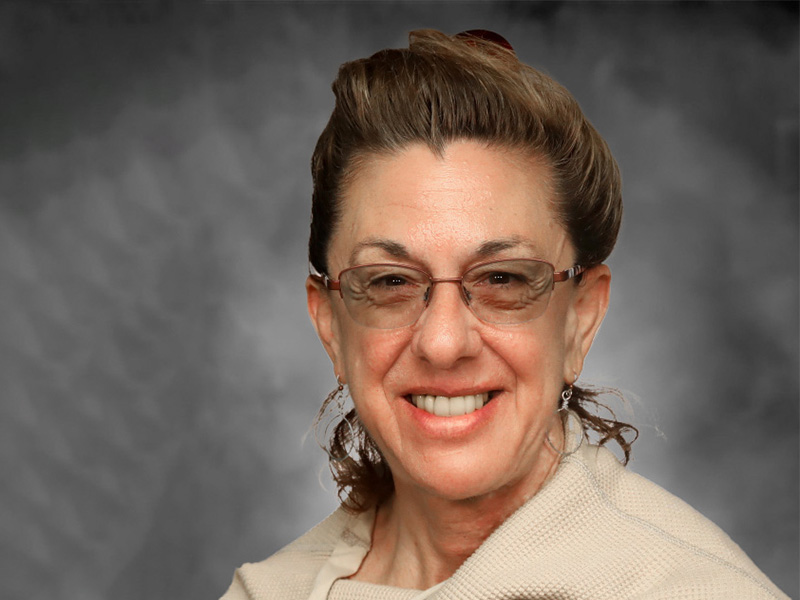 In January of this year, Barbara Gower, Ph.D., was named chair of the Department of Nutrition Sciences. During Women’s History Month, the UAB Comprehensive Diabetes Center (UCDC) sat down with Gower, who is a member of the center, to learn more about her journey to chair and her vision for the department.
In January of this year, Barbara Gower, Ph.D., was named chair of the Department of Nutrition Sciences. During Women’s History Month, the UAB Comprehensive Diabetes Center (UCDC) sat down with Gower, who is a member of the center, to learn more about her journey to chair and her vision for the department.
Having first joined the department in 1997, Gower has a unique understanding of the department’s history and deep enthusiasm for its continued growth. As a researcher, she also has a passion to see the department be a leader in nutrition research.
Gower’s own nutrition research has led her and her colleagues to discover that food is much more than just calories. She further reflects that when she first got into the obesity-nutrition field, the prevailing dogma regarding the cause of obesity was “energy-in, energy-out”.
“All you had to do to control your weight was count calories and do the math. We now know that that is not true. You can’t deposit fat unless certain hormones and enzymes are engaged. Similarly, it is difficult to lose fat without inducing changes in the endocrine system and without switching on or off certain metabolic pathways.”
“Some people struggle with their weight because of genetic factors that enhance their ability to store fat. We now know a lot more about how endocrinology and metabolism (and the genes that regulate them) orchestrate body weight and composition. The exciting challenge now is figuring out how to “hack” these processes to get the desired results in terms of body composition and metabolic health,” said Gower.
But Gower says that the most rewarding part of research is hearing that it has changed someone’s life through a diet intervention. She feels the magic happens when research translates from the bench to the patient through a research study or clinical practice.
With the goal to translate nutrition research to the patient, Gower hopes to launch a new Metabolic Health Clinic. Specifically, the clinic would aim to treat metabolic disease with diet.
Gower and other researchers have found that many chronic diseases have metabolic underpinnings that could be addressed with diet. She feels the new Metabolic Health Clinic would be uniquely poised to make the deep south community healthier and feeling well through individualized nutrition plans.
Food as medicine
The natural next step for the department then, Gower notes, is entering into the space of precision nutrition and using food as medicine. She says that with personalized nutrition, researchers and clinicians can build a metabolic phenotype for each person to determine which diet is right for them, since diet is not a “one-size-fits-all” model.
With the idea of nutrition as medicine, Gower says the possibilities for improving quality of life for patients with chronic disease becomes almost endless– in the best way. And, it leaves the door open for continued collaboration between the department and many other areas across UAB.
“I would like to see sound nutrition therapy being provided to patients with metabolic diseases – diabetes, cardiovascular disease, kidney disease, kidney stones, Alzheimer’s Disease, and more. Drugs are vital, but they should be the second line of treatment after diet, and drugs will work a lot better if metabolic health is improved first through nutrition,” says Gower.
Gower observes that, over the last century, as availability of pharmaceutical products for various metabolic diseases increased, the use of nutrition as therapy declined, and unfortunately, so did the health of those with metabolic diseases. But she is encouraged by the increased attention nutrition has been getting in research, and society as a whole.
“My hope is that our department can provide the research results required to literally re-write the textbooks on optimal nutrition in humans and can train the next generation of dietitians to effectively guide patients to diets that are healthful and therapeutic,” said Gower.”
A little bit of inspiration
Each year, presidential proclamation declares March Women’s History Month, and this month, Gower has some advice for aspiring woman researchers and leaders in research.
For inspiration, Gower draws from the words of Dale Carnegie: “Flaming enthusiasm, backed by horse sense and persistence, is the quality that most frequently makes for success.” She emphasizes the importance of remaining passionate about the work and staying focused.
“The trick is keeping your eye on the prize. But pay careful attention to the data; research results never fail to yield surprises, and you have to be observant and open to new ways of thinking,” says Gower. “Creativity is a surprisingly large part of being a successfully investigator.”
UCDC Director Anath Shalev, M.D., is looking forward to the UCDC and the Department of Nutrition Science’s continued collaboration on diabetes research and to find new and better therapies tailored to the individual person affected by diabetes.
“The department has a bright future of continued research and clinical excellence with Dr. Gower at the helm,” said Shalev.